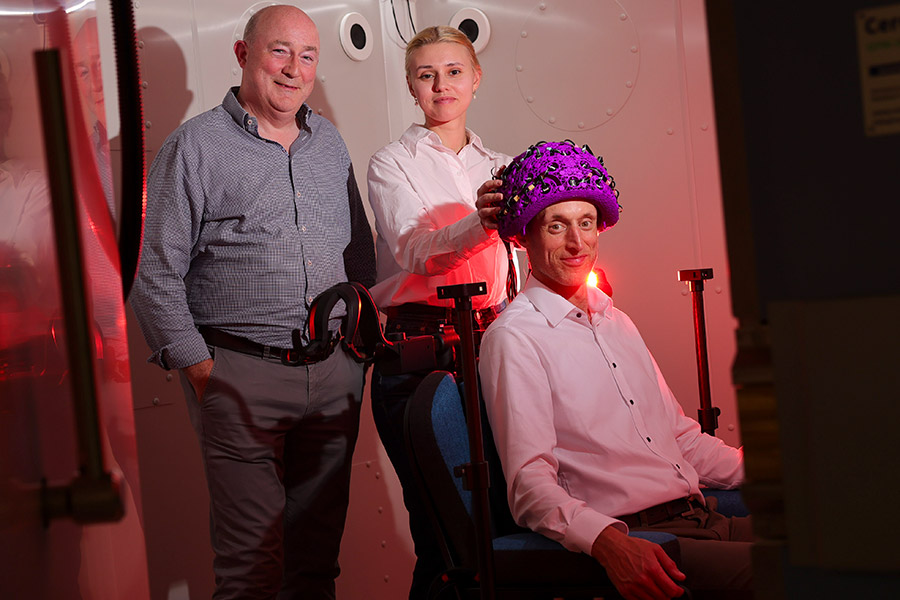The Seanad Public Consultation Committee on Small and Medium Sized Businesses in Ireland recently issued its report. Rapporteur Pádraig Ó Céidigh explains what needs to be done next.
As an entrepreneur I am passionate about encouraging and supporting a positive culture where people can start, scale and develop their own business. There are few greater challenges in life than starting and growing your own business. This is often a lonely journey with many pitfalls and unforeseen risks. An entrepreneur discovers very quickly that they need a high level of resilience and commitment in order to have a reasonable chance of success.
The following phrase in my native language comes to mind – “ag snámh in aghaidh an easa”. As someone who has created and grown various businesses, I had to learn quickly how to swim against the tide or at least give it my best shot.
I have an unshakeable belief in Irish people and in our entrepreneurial talent and ability. Ever since I won Ireland’s EY Entrepreneur of the Year and was given the honour to represent our country in the World Entrepreneur of the Year Finals, I have committed myself to supporting and promoting entrepreneurship on this island.
Through the forum I have come into direct contact with some of the most successful entrepreneurs in the world. The entrepreneurs on this island of ours are as good as the best in the world. However, we have to foster, encourage and support those people who create the very backbone of our businesses and communities.
Swimming against the tide cannot continue to be the default position going forward, especially as Irish SMEs have to compete more and more on a world stage with all the uncertainty that this brings.
I am delighted that the Seanad Public Consultation Committee is, for the first time in the history of the Seanad, focusing on small and medium-sized enterprises. We need to understand the key attributes of those businesses and of those people who take significant risk, both financially and personally, in order to create and develop those businesses.
We can, and, in my view, have an obligation to provide the environment in facilitating and supporting people to take that leap and get more involved in creating their own enterprise so that they can contribute to their community and society. Many family businesses measure success beyond profit and growth to long-term commitment to their communities and employees.
Integrated National Strategy
The overall aim of the Seanad Public Consultation Committee process is to create the basis for an integrated national strategy proposal document supporting the fostering, growth and sustainability of indigenous Irish SMEs in becoming a solid foundation for the long-term success of the Irish economy and our people.
SMEs employ in excess of one million people. Those women and men who create and lead those small businesses all over the country work tirelessly and, usually under significant stress in order to help their businesses succeed. The personal sacrifices are significant as a myriad of factors, many of which are outside the control of the entrepreneur, can have detrimental effect on the business. Other factors include fear of failure and stress on families. Many of those issues and proposed solutions are reflected in this comprehensive evidence-based Report.
Less than half of all entrepreneurial businesses survive the first five years. The reasons for this are varied, however lack of capital, cash flow challenges, resources and knowledge of key areas are some of the principal factors.
• Download Seanad Report on SMEs
There are also significant barriers to starting a business. Many of those barriers can be reduced with effective and proactive policies directed towards SMEs. We have identified those policy changes in this report. For example, the consistent demand by banks for personal guarantees deters many budding entrepreneurs from starting a new business. Other jurisdictions such as Germany, France, the UK and the USA have identified this as a major blocker for SMEs and have ensured that personal guarantees are no longer enforced.
SME owners are the heart and soul of sustaining employment throughout the state. This report on SMEs in Ireland reveals the extent to which the SME sector forms the lifeblood of the Irish economy – accounting for 99.8% of active enterprises and 65% of employees. Nonetheless, for over six decades now, industrial policy has remained focused primarily on attracting large foreign owned investment while at the same time there lacks a coherent and extensive strategy for fostering SME growth.
Although significant advances have been made in terms of providing supports to SMEs, such supports tend to be directed at those firms engaged primarily in high technology, export driven activity.
SME Sector Diversity
This is not undesirable since innovation is key to economic growth, but over-attending to this activity at the cost of overlooking other categories of enterprises fails to recognise the diversity within the SME sector. This diversity is illustrated in the report by the existence of not just high-growth and technology-led startups but also family-owned businesses, rural businesses, owner-manager firms, businesses in traditional sectors as well as the heterogeneous profiles of business owners.
If nurtured, this diverse range of enterprises and entrepreneurs can bring sustainability to communities as well as potential opportunities for increased innovation activity in the economy. However, exploiting the opportunity of enhanced sustainability and innovation requires a coherent and targeted strategy for the SME sector.
Access to finance, the uncertainty of Brexit, attracting and retaining talent, fostering a culture of innovation, providing training for entrepreneurs and access to telecommunications infrastructure were among those most commonly expressed in submissions.
The government’s role should be less about interfering in the sector, which typically creates barriers for entry, and more about identifying distinct local strengths across regions and enhancing local business environment conditions to build on these strengths.
One of the most significant recommendations arising from the report is to establish a new dedicated junior ministerial role focused on the SME sector that would allow for such a targeted approach.
Photo: Pádraig Ó Céidigh (left) in 2013 with Frank O'Keeffe, Partner-in-Charge of the Ernst & Young Entrepreneur Of The Year










